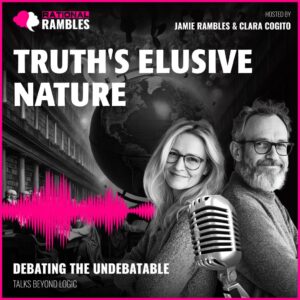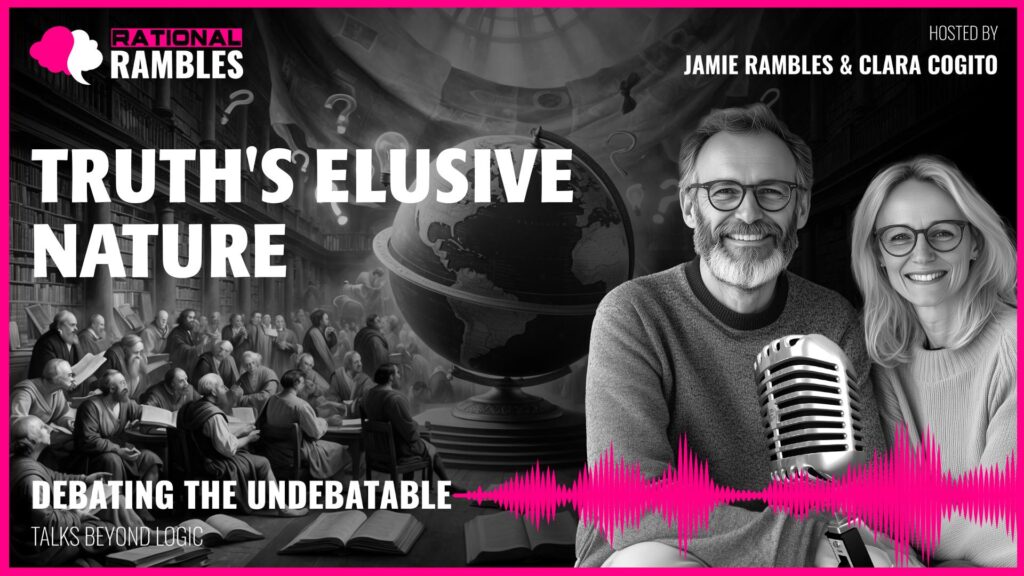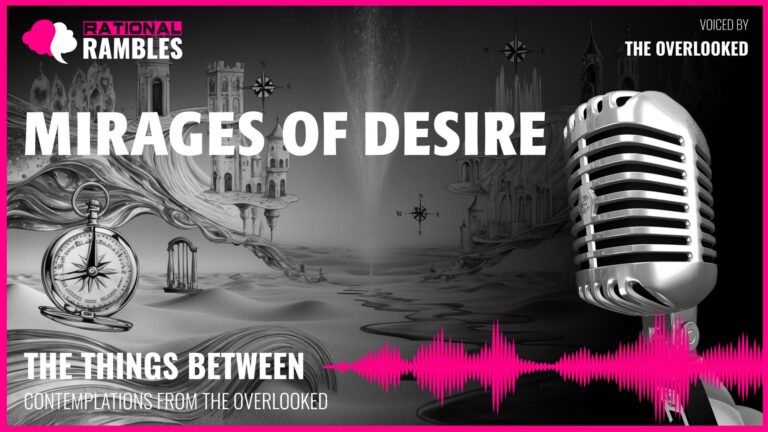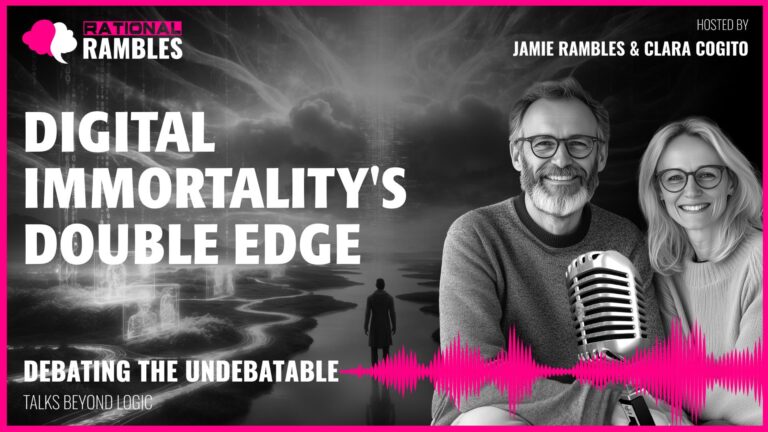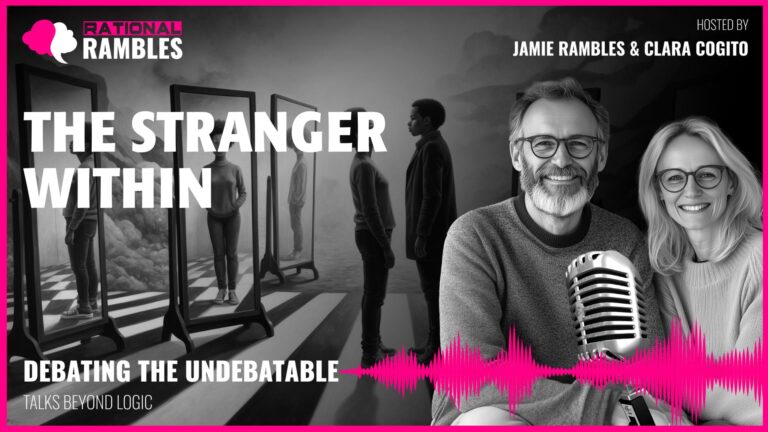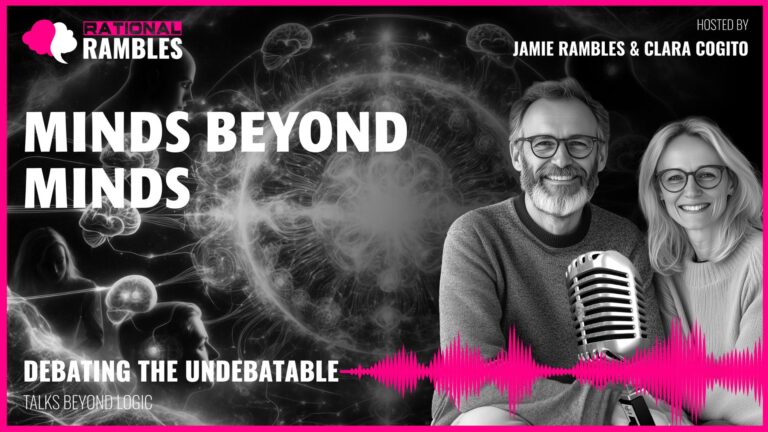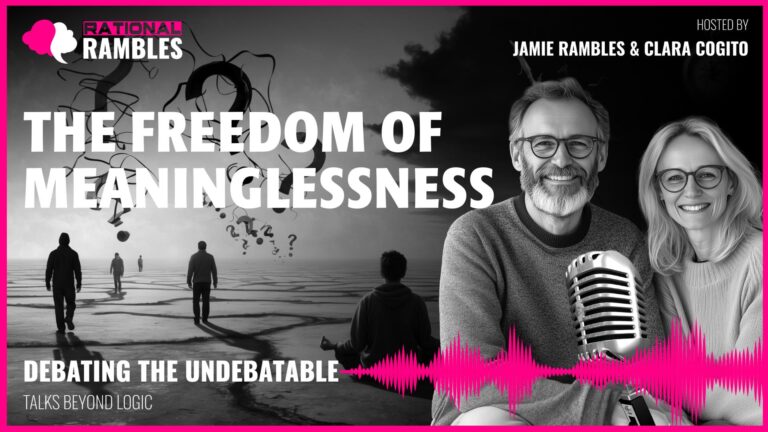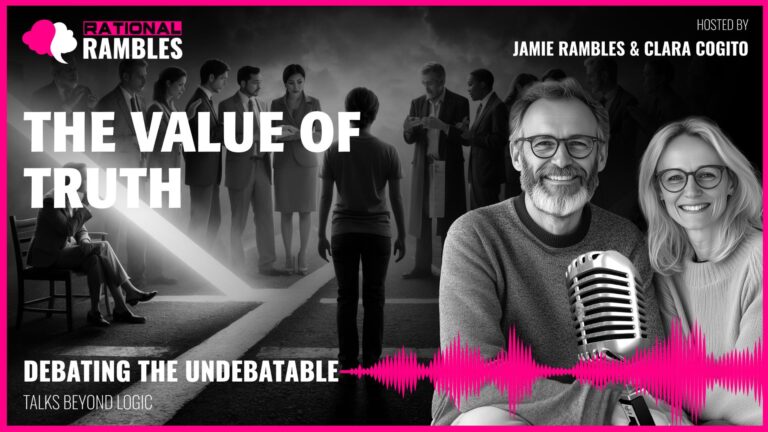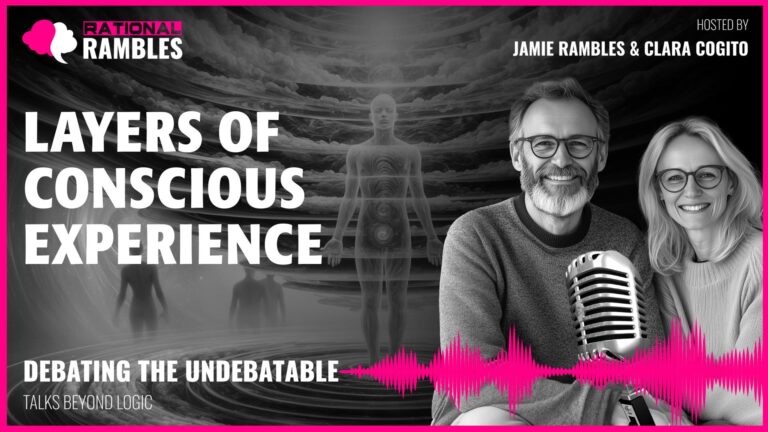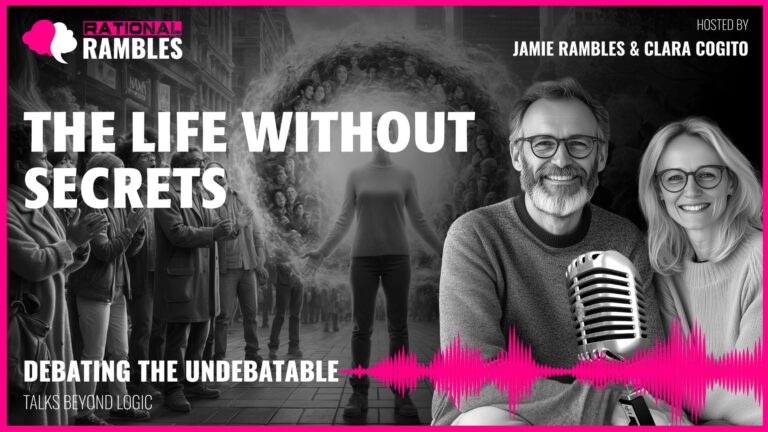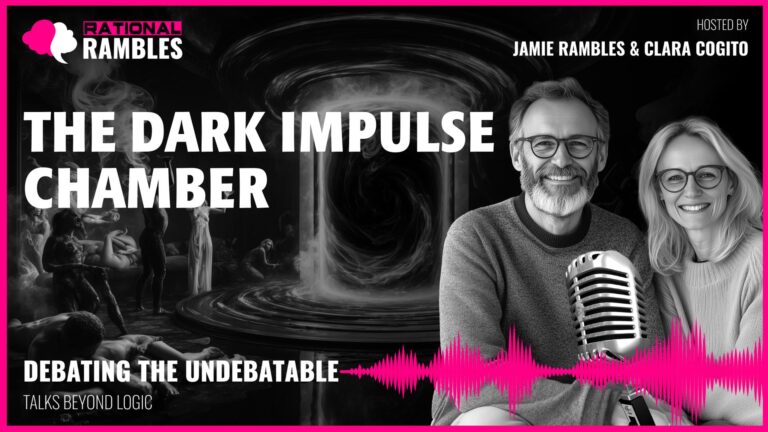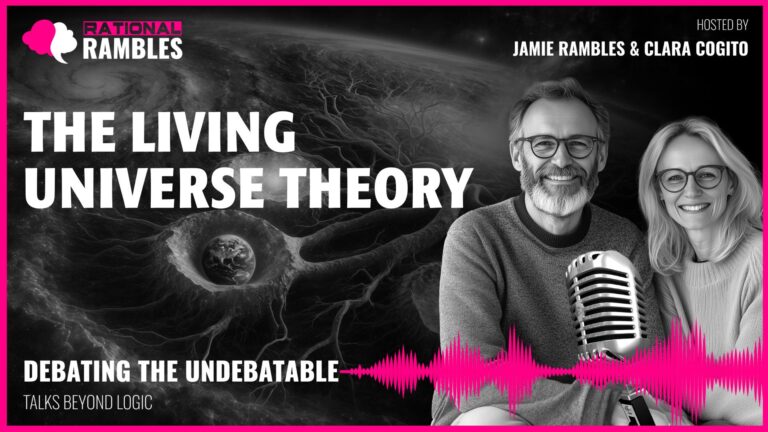Truth’s Elusive Nature: The Paradox of Human Knowledge
Introduction: The Human Quest for Truth
For millennia, philosophers, scientists, and thinkers of all traditions have grappled with a fundamental paradox at the heart of human knowledge: we perpetually seek truth while simultaneously recognizing the inherent limitations of our cognitive capacities. This tension creates what might be called the truth paradox—a seemingly irresolvable conflict between our aspirations to grasp objective reality and our awareness that all human understanding is provisional, partial, and perspectival. This paradox raises profound questions about the nature of truth itself: Is truth something absolute that exists independent of human minds, waiting to be discovered? Or is truth merely a useful fiction, a concept we employ to make sense of our experiences without corresponding to anything beyond our human constructions?
This exploration delves into this ancient paradox through multiple lenses—philosophical, psychological, scientific, and existential—to understand not only the theoretical dimensions of the truth paradox but also its practical implications for how we conduct our intellectual inquiries and live our lives. The paradox is not merely an abstract puzzle but touches on fundamental questions about human cognition, the foundations of knowledge, and our place in the cosmos as beings who seek to understand a reality that consistently exceeds our grasp.
The Philosophical Roots of the Paradox
The truth paradox has ancient philosophical roots. Plato famously illustrated human epistemic limitations through his Allegory of the Cave, suggesting that what we perceive are merely shadows cast on a wall, while true reality—the Forms—exists in a realm beyond direct human perception. This metaphor captures a persistent intuition: what we take to be true may be merely an imperfect representation of a deeper reality beyond our immediate experience.
Immanuel Kant later formalized this insight in his distinction between noumena (things as they are in themselves) and phenomena (things as they appear to us). Kant argued that human knowledge is constrained by the structures of our minds—space, time, causality—which organize our experiences into intelligible patterns but simultaneously prevent us from accessing reality “in itself.” Knowledge, for Kant, is always of appearances, never of the underlying reality that generates those appearances.
From Correspondence to Pragmatism
The correspondence theory of truth—the intuitive view that true statements are those that correctly describe how things are in the world—has dominated much of Western philosophy. Yet, as our understanding of human cognition has developed, this seemingly straightforward view has come under scrutiny. If our access to “the world” is always mediated by our perceptual and cognitive faculties, how can we verify that our statements correspond to reality as it is in itself?
This challenge gave rise to alternative conceptions of truth. William James and other pragmatists proposed that truth might be better understood in terms of utility rather than correspondence. On this view, true beliefs are those that prove useful in helping us navigate our environment and achieve our goals. The truth of a statement lies not in its correspondence to some mind-independent reality but in its practical value for living. As James put it, “True ideas are those that we can assimilate, validate, corroborate and verify.”
The Social Dimension of Truth
Beyond individual cognition, philosophers like Jürgen Habermas have emphasized the social dimension of truth-seeking. For Habermas, truth emerges through communicative rationality—the process of open, equal dialogue aimed at mutual understanding. On this view, truth claims are validated not by their correspondence to a reality independent of human practices, but by the quality of the argumentative process through which they are justified.
This connects to Hans-Georg Gadamer’s hermeneutic approach, which emphasizes how understanding emerges through the “fusion of horizons”—the integration of different interpretive perspectives. Truth, in this view, isn’t something any individual or tradition possesses completely but emerges in the space between perspectives. This social conception of truth doesn’t necessarily deny the existence of mind-independent reality but suggests that our access to it is always mediated by social and linguistic practices.
The Psychological Dimensions of Knowledge
The philosophical paradox of truth-seeking finds empirical support in psychological research on human cognition. Our minds do not passively receive information but actively construct meaning. Even at the most basic perceptual level, what we “see” is partially constructed by our brains, filtered through expectations and shaped by past experiences. The neuroscientific evidence is clear: perception is not a direct window onto reality but an active process of interpretation.
Cognitive Biases and the Construction of Reality
The human mind is subject to numerous cognitive biases that systematically distort our perception and reasoning. Confirmation bias leads us to notice and remember evidence that supports our existing beliefs while overlooking or dismissing contradictory information. Availability bias causes us to overestimate the probability of events that come readily to mind. Anchoring effects demonstrate how arbitrary initial information disproportionately influences our judgments.
These biases aren’t occasional errors but fundamental features of human cognition—adaptive shortcuts that evolved to help us navigate complex environments with limited cognitive resources. While they may be useful in many contexts, they systematically distort our access to objective reality. As Nobel laureate Daniel Kahneman has documented, even experts aware of these biases remain vulnerable to their influence, suggesting that they represent inherent limitations in human knowledge-seeking rather than correctable flaws.
Memory and the Construction of Experience
Our memories, often trusted as reliable records of past experience, are themselves reconstructive rather than reproductive. Each time we recall an event, we are not accessing a perfect recording but rebuilding the memory, incorporating new information, current emotional states, and contextual cues. This process of reconstruction makes memories malleable and subject to distortion over time.
Studies on eyewitness testimony demonstrate how post-event information can be incorporated into memories, creating confident but false recollections. Even flashbulb memories—vivid recollections of emotionally significant events like learning about the 9/11 attacks—show surprising inaccuracies when compared to contemporaneous records. If our memories of direct experience are subject to such reconstruction, our claims to knowledge become more tenuous, supporting the philosophical intuition that human knowledge is inherently provisional.
Developmental Perspectives on Truth-Seeking
Developmental psychology offers another lens on the truth paradox. Children develop what psychologists call “naive realism”—an intuitive belief that they perceive the world directly as it is and that others share their perceptions. Only gradually do they acquire the capacity for “theory of mind”—the understanding that others have different perspectives, beliefs, and knowledge states.
This developmental trajectory suggests that our intuitive realism—the sense that we access reality directly—may be a default cognitive stance rather than a philosophical conclusion reached through careful reasoning. The development of perspective-taking abilities doesn’t eliminate this intuitive realism but allows us to recognize its limitations reflectively. This creates the cognitive tension at the heart of the truth paradox: we simultaneously experience ourselves as directly accessing reality and reflectively recognize the limitations of that access.
Scientific Knowledge and Its Limitations
Science represents humanity’s most systematic attempt to transcend the limitations of individual cognition and access objective truth. Through rigorous methodology, peer review, replication requirements, and collective scrutiny, the scientific enterprise aims to filter out individual biases and produce knowledge that corresponds to reality independent of human perspectives. Yet the history and philosophy of science reveal that even this disciplined approach cannot entirely escape the truth paradox.
The Theory-Ladenness of Observation
Philosophers of science like Thomas Kuhn and N.R. Hanson demonstrated that scientific observations are always “theory-laden”—interpreted through conceptual frameworks that determine what counts as relevant data and how that data should be understood. Scientists don’t simply observe “facts” directly; they observe phenomena through the lens of existing theoretical commitments. As Kuhn famously argued, scientists working within different paradigms may look at the same phenomena but see different things, making scientific observation itself dependent on theoretical contexts.
This recognition challenges the naive view that science progresses by simply accumulating empirically verified facts. If observations themselves are shaped by theoretical frameworks, scientific knowledge cannot claim to be a theory-independent mirror of reality. Instead, scientific understanding becomes a complex interplay between theoretical constructs and empirical constraints, with no direct access to “raw reality” independent of conceptual mediation.
The Underdetermination of Theory by Evidence
Another fundamental limitation of scientific knowledge comes from what philosophers call the “underdetermination of theory by evidence.” This principle, articulated by Willard Van Orman Quine and others, holds that any body of evidence can be explained by multiple incompatible theories. The available data never logically entails a single theoretical explanation to the exclusion of all competitors.
This underdetermination means that theory choice in science cannot be determined solely by empirical evidence but must involve additional factors like simplicity, explanatory scope, consistency with other accepted theories, and even aesthetic considerations like elegance. These extra-empirical factors introduce an irreducibly human element into scientific knowledge, suggesting that even our best scientific theories cannot claim to be uniquely determined by mind-independent reality.
Paradigm Shifts and Scientific Revolutions
Perhaps the most profound challenge to the cumulative view of scientific knowledge comes from Kuhn’s analysis of scientific revolutions. Kuhn argued that science does not progress linearly toward increasingly accurate representations of reality but undergoes periodic paradigm shifts—fundamental transformations in the conceptual frameworks through which scientists understand their subject matter.
During these revolutionary periods, competing paradigms cannot be directly compared because they define the relevant problems, methods, and standards of evaluation differently. The shift from Newtonian physics to Einstein’s relativity, for instance, wasn’t simply the replacement of one theory with a more accurate one but involved fundamental reconceptualization of space, time, and the nature of scientific explanation itself.
This pattern of revolutionary change raises a troubling question: if our most successful scientific theories are periodically replaced by fundamentally different frameworks, can we ever claim to have reached “the truth” about reality? Each paradigm feels comprehensive and “true” to those working within it, until anomalies accumulate and trigger the next revolution. This historical pattern suggests that even our current best theories may be destined for revolutionary replacement, making all scientific knowledge provisional in a deep sense.
Evolutionary Perspectives on Truth-Seeking
Evolutionary approaches offer another perspective on the truth paradox. Our cognitive faculties evolved through natural selection, raising questions about whether they evolved to track truth or merely to enhance survival and reproduction. This evolutionary lens brings both challenges and insights to our understanding of human knowledge.
The Adaptive Value of Truth
At first glance, accurate representations of reality would seem adaptively valuable. An organism that perceives predators, food sources, and environmental hazards accurately would have a survival advantage over one with less accurate perceptions. This suggests that evolution might select for truth-tracking cognitive abilities, at least in domains directly relevant to survival and reproduction.
However, evolutionary theorists like Donald Hoffman have challenged this intuitive view. Using mathematical models and evolutionary game theory, Hoffman argues that perceptual systems evolved to maximize fitness rather than accuracy. Just as a desktop computer interface presents icons rather than displaying the underlying binary code, our perceptual systems may have evolved to present a simplified “user interface” that facilitates effective interaction with our environment rather than revealing its true nature.
This provocative thesis suggests that our most basic perceptual access to reality may be fundamentally misleading about the nature of the world “as it is in itself.” If our perceptual systems evolved for fitness rather than accuracy, the truth paradox may be even more profound than previously recognized, affecting not just abstract theoretical knowledge but our most basic experience of reality.
Plantinga’s Evolutionary Argument Against Naturalism
Philosopher Alvin Plantinga has pushed this evolutionary challenge in a different direction. His “evolutionary argument against naturalism” suggests that if our cognitive faculties evolved solely for survival value rather than truth-tracking, we have no reason to trust that they lead to true beliefs about reality. Natural selection would favor cognitive systems that produce adaptive behavior, regardless of whether the beliefs generating that behavior are true.
This creates a self-referential problem for evolutionary naturalism: if we accept the evolutionary account of our cognitive origins, we must acknowledge that our cognitive faculties weren’t designed to track truth, undermining our confidence in all our beliefs—including our belief in evolutionary theory itself. This argument suggests a potential incoherence in evolutionary accounts of human cognition that deny any truth-tracking function to our cognitive faculties.
Beyond Individual Evolution: Cultural Knowledge Systems
While biological evolution operates on genetic material over long timescales, cultural evolution allows human knowledge systems to develop more rapidly through social learning, institutional structures, and cumulative innovation. These cultural knowledge systems may partially compensate for individual cognitive limitations through mechanisms like peer review, replication requirements, and critical scrutiny.
Evidence from research on “the wisdom of crowds” suggests that under the right conditions, collective judgment can outperform individual judgment. Scientific institutions at their best harness this principle through methodological constraints and critical evaluation. While these social knowledge systems aren’t infallible—as replication crises in various fields remind us—they represent humanity’s most successful attempt to transcend individual cognitive limitations and approach more accurate understandings of reality.
Pragmatic Approaches to the Paradox
Given the seemingly inescapable limitations on human knowledge, how should we approach the truth paradox in practice? Pragmatic approaches offer ways to navigate this tension productively, acknowledging both our aspirations to truth and the provisional nature of all human understanding.
Truth as Useful Fiction
One pragmatic approach treats the concept of absolute truth as what philosopher Hans Vaihinger called a “useful fiction”—an idea that, while strictly speaking false or unverifiable, helps organize our experience and guide our inquiries productively. On this view, we proceed as if our truth-seeking could ultimately succeed, even while recognizing that complete success may be unattainable.
This connects to what psychologists call “positive illusions”—slightly optimistic beliefs about ourselves and our capabilities that foster resilience and motivation. Studies show that moderate optimism, even when not perfectly calibrated to reality, can lead to better outcomes by encouraging perseverance. Perhaps the belief that we can approach truth, even if we can never be certain of reaching it, functions as a necessary positive illusion that drives intellectual progress.
Tentative Certainty
Psychologists distinguish between intellectual humility—recognizing the fallibility of our beliefs—and practical commitment. A doctor knows medical knowledge is constantly evolving but must still act decisively based on current best evidence. This suggests an ideal of “tentative certainty”—committing to our best understanding while remaining open to revision.
William James addressed this tension in his essay “The Will to Believe,” arguing that there are cases where we must make a decision before all the evidence is in, and in those cases, it can be rational to commit to a belief that cannot be fully verified in advance. This applies to our commitment to the possibility of truth itself—we cannot prove that our truth-seeking will ultimately succeed, but we must proceed as if it could.
Domain-Specific Approaches to Truth
Another pragmatic approach recognizes that different domains of inquiry may require different conceptions of truth. Physical sciences may employ more realist conceptions of truth, while social or moral domains might be better understood in more constructivist or pragmatic terms. Philosophers like Crispin Wright have developed pluralistic theories of truth along these lines.
This domain-specific approach acknowledges that the standards and methods appropriate for establishing mathematical truths differ from those for historical truths or moral truths. Rather than seeking a one-size-fits-all account of truth, this approach allows for contextual variation in how truth claims are justified and understood, while maintaining truth as a normative ideal across domains.
The Ethical and Existential Dimensions
The truth paradox extends beyond epistemology to ethical and existential questions about how we should live in light of the provisional nature of human knowledge. These dimensions connect the abstract philosophical puzzle to concrete questions about intellectual virtue and personal development.
Epistemic Virtues
If all human knowledge is provisional, certain epistemic virtues become especially important: intellectual humility, openness to revision, tolerance for ambiguity, and willingness to engage seriously with different perspectives. These virtues don’t eliminate the truth paradox but help us navigate it productively, balancing commitment to our current best understanding with recognition of its limitations.
Research on wisdom across cultures suggests that wise reasoning is characterized not by adherence to absolute principles but by comfort with contradiction and ambiguity, recognition of multiple perspectives, and intellectual humility. This connects epistemic virtues to broader conceptions of human flourishing, suggesting that how we approach the truth paradox shapes our development as persons.
The Ethics of Belief
The provisional nature of human knowledge raises ethical questions about what standards should govern our belief formation. W.K. Clifford famously argued that “it is wrong always, everywhere, and for anyone, to believe anything upon insufficient evidence.” This evidentialist position sets a high ethical standard for responsible belief formation.
Yet James’s pragmatism challenges this strict evidentialism, arguing that in certain cases—particularly those involving values and commitments that cannot be settled by evidence alone—other factors legitimately influence belief formation. The truth paradox complicates the ethics of belief by suggesting that “sufficient evidence” itself is a contextual standard dependent on the type of claim and its practical significance.
Existential Authenticity
Existentialist thinkers emphasize authenticity—living in accordance with one’s own freely chosen values rather than uncritically adopting conventional beliefs. The truth paradox gives this existential ideal added depth by highlighting the tension between our need for stable beliefs to guide action and the recognition that all such beliefs are provisional.
Authentic engagement with the truth paradox involves neither dogmatic certainty nor nihilistic relativism but a kind of “committed openness”—taking responsibility for our beliefs while recognizing their limitations and remaining open to growth and revision. This existential stance accepts the inherent uncertainty of human knowledge not as a defeat but as an invitation to ongoing critical reflection and intellectual development.
Beyond the Paradox: Integrative Approaches
While the truth paradox may be inescapable, integrative approaches offer ways to transcend the false dichotomy between naive realism and radical skepticism. These approaches acknowledge both the reality beyond human perspectives and the inescapability of our perspectival access to that reality.
Critical Realism
Critical realism, associated with philosophers like Roy Bhaskar, maintains that there is a reality independent of human thought while acknowledging that our access to that reality is always mediated by conceptual frameworks and social practices. This position distinguishes between ontology (what exists) and epistemology (how we know), avoiding both the naive realism that ignores the social construction of knowledge and the strong constructivism that reduces reality to human conceptions.
Critical realism allows us to see science not as discovering final truths but as developing increasingly powerful explanatory models that capture causal mechanisms operating in reality. These models are understood as provisional and perspective-dependent but not arbitrary or disconnected from the reality they seek to explain. This approach maintains truth as a regulative ideal while acknowledging the socially situated nature of all knowledge claims.
Perspectival Realism
Philosopher Ronald Giere has developed a “perspectival realism” that uses the analogy of visual perspective to understand scientific knowledge. Just as visual perspectives on an object are partial but can be accurate from that perspective, scientific theories offer perspective-dependent views of reality that can be accurate within their domain of application without capturing the complete truth.
This view avoids both the absolutism that claims a “God’s-eye view” of reality and the relativism that denies any objective constraints on knowledge. Different theoretical perspectives can offer complementary rather than competing accounts of reality, each capturing different aspects of complex phenomena from different angles. Progress in knowledge involves developing more sophisticated perspectives and understanding how they relate to one another, not reaching a single, final perspective that renders all others obsolete.
Dialogical Understanding
Dialogical approaches, drawing on thinkers like Mikhail Bakhtin and David Bohm, suggest that truth emerges not through monological pronouncements but through genuine dialogue between different perspectives. Truth is neither purely objective nor purely subjective but emerges in the space between perspectives when they are brought into authentic engagement.
This dialogical conception reframes the truth paradox by suggesting that truth is not something any individual or tradition possesses completely but something that emerges in the ongoing conversation between different ways of knowing. The recognition of our perspectival limitations becomes not an obstacle to truth but a condition for its emergence through dialogue that integrates diverse viewpoints into more comprehensive understanding.
Conclusion: Living with the Paradox
The paradox of truth-seeking—the tension between our aspiration to grasp objective reality and our recognition of the inherent limitations of human knowledge—may be inescapable. Yet this paradox need not lead to cynicism or abandonment of truth as a regulative ideal. Instead, it can foster a more nuanced approach to knowledge that acknowledges both its partial, perspectival nature and its genuine connection to reality beyond human constructions.
Perhaps what’s most valuable is not resolving the paradox but maintaining the creative tension between our truth-seeking aspirations and our epistemic humility. This tension drives intellectual progress by preventing both the complacency of thinking we’ve arrived at final truth and the resignation of thinking truth is beyond our reach entirely. It encourages an approach to knowledge characterized by committed openness—taking our current best understanding seriously enough to act on it while remaining open to its revision and expansion.
The paradox also reminds us that truth-seeking is not merely an intellectual endeavor but an ethical and existential one that shapes who we become as persons and communities. How we navigate this paradox influences whether we hold our convictions with dogmatic certainty or tentative commitment, whether we engage with different perspectives defensively or curiously, whether we see intellectual disagreement as a threat or an opportunity for learning.
Ultimately, the paradox of truth-seeking may be not a problem to be solved but a productive tension to be maintained—one that drives intellectual progress precisely because it can never be fully resolved. By acknowledging both the reality beyond our perspectives and the inescapability of our perspectival access to that reality, we can pursue truth with both passion and humility, confident that even if complete understanding forever eludes us, the journey of discovery remains profoundly worthwhile.


